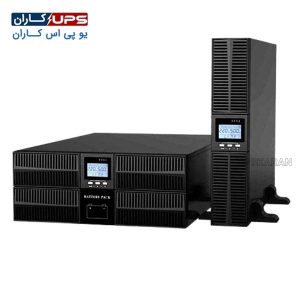The Ultimate Guide to UPS Selection for Server Environments
페이지 정보
작성자 Maira Ginn 작성일 25-10-09 05:26 조회 48 댓글 0본문

Selecting an appropriate uninterruptible power supply is essential to safeguarding server infrastructure, preventing data loss, and sustaining operational continuity.
Start with a comprehensive assessment of your energy needs.
Calculate the total wattage of all devices in the server room including servers, network switches, routers, storage units, and cooling systems.
Always factor in a 20–30% overhead to ensure headroom for خرید یو پی اس scalability and unforeseen demand.
Avoid selecting a unit that’s too large or too small.
An undersized unit will shut down under load, while an oversized one may be inefficient and unnecessarily expensive.
Next, consider the type of UPS.
UPS systems fall into three key categories: standby, line-interactive, and online double-conversion.
Offline UPS units are budget-friendly but provide limited surge and voltage protection—ideal for light-duty environments.
These units enhance power quality with adaptive voltage regulation, making them suitable for most medium-scale server rooms.
Double-conversion online UPSes constantly regenerate power, ensuring zero-transfer interruption and pristine output waveform.
In high-availability data centers, only double-conversion UPS technology meets reliability standards.
Battery runtime is another key factor.
Determine how long you need your systems to remain operational during an outage.
For some, five to ten minutes is enough to initiate a controlled shutdown.
In distributed or off-site facilities, extended runtime of 30+ minutes is often essential.
Opt for models with swappable battery packs and verify their service lifespan, usually 3–5 years.
Prioritize advanced functions: AVR, smart battery analytics, and network-based supervision.
Many modern UPS units offer network connectivity via Ethernet or USB so you can integrate them with monitoring software.
Gain instant alarm triggers, historical usage logs, and seamless automated shutdown routines when utility power fails.
Proactive remote diagnostics allow IT teams to intervene before failures occur.
Server room climate directly impacts UPS reliability.
Data centers commonly maintain high ambient heat and significant dust accumulation.
Ensure the UPS is rated for sustained operation in hot, dusty server room settings.
Check the operating temperature range and airflow specifications.
Avoid placing the UPS in direct sunlight or near heat sources.
Proper ventilation is essential to prevent overheating and extend battery life.
Prioritize expandability and strong technical support infrastructure.
Choose a UPS model that allows for easy upgrades and has a strong manufacturer reputation for reliability and customer service.
The length of coverage, ease of replacement components, and responsiveness of support teams are critical during power failures.
Investing time in selecting the right UPS for your server room is not just about protecting hardware—it is about protecting your business.
A properly selected uninterruptible power supply lowers failure probability, slashes outage duration, and keeps essential services running through any power disturbance.
- 이전글 The Often Unknown Benefits Of Back Door Installation Services
- 다음글 Ufabet: Enjoy Thrilling Casino Site Gamings in Thailand
댓글목록 0
등록된 댓글이 없습니다.